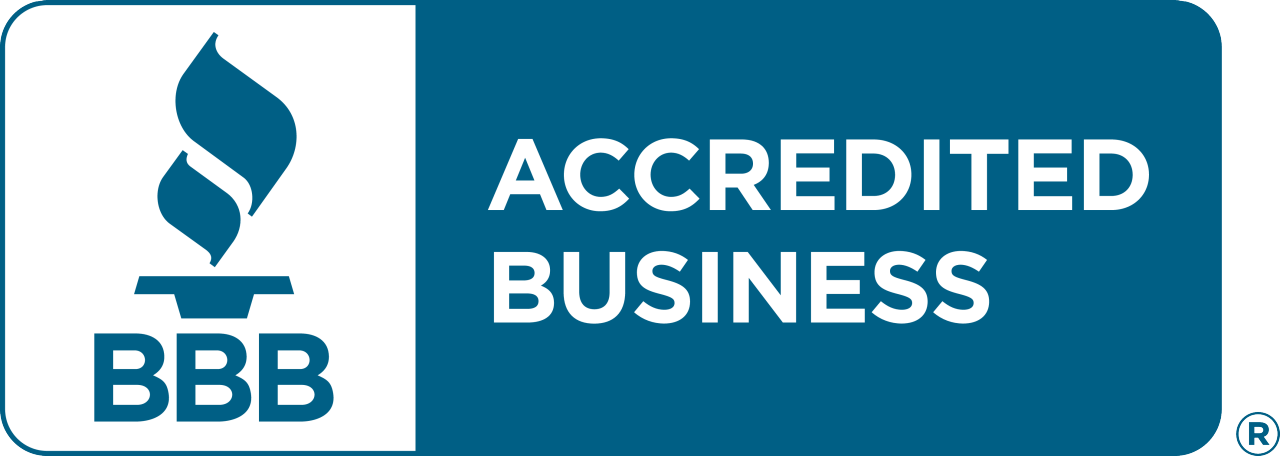Bo Rogers has been in the heating and cooling industry for 21 years, starting in 2001 as a residential HVAC installer for Peachtree Service Experts in Atlanta, GA. Bo caught on quickly and after being promoted as a residential service technician he found his true calling as a residential comfort advisor, earning hundreds of satisfied customers and winning several Lennox & Amana Sales Awards. In 2016 Bo and his family moved to the Ashland area to be closer to family and he has spent the last 4 years as the area’s leading Comfort Advisor with Comfort Control. Bo’s personal mantra is to treat every customer like he would expect his family to be treated and he only recommends products and services a customer actually needs.
It’s the rare guy on the street who says, “Well, it seems like the right time to replace my water heater—can’t wait to go out and shop for one.” Most water heaters have a lifespan of 10 years, more or less, but you can encounter issues with your water heater before it kicks the bucket. If your water heater is making strange noises, pushing out rusty water or showing signs of rust itself, not heating adequately, or leaking, it’s probably time to buy a new water heater.
Before you spend your Saturday shopping for a water heater, here are a few specifics to help you choose the right water heater for your home:
Water Heater Fuel Types
Water heaters typically come in one of three different fuel sources; natural gas, propane or electric.
Electric: Electric water heaters are most common in homes without access to a natural gas supply or propane tank; however, they can be installed anywhere. Electric heaters typically heat water the same way a household toaster or hair dryer heats air, using an electrical current that runs through a heating element and/or resistance coil to warm the cold water as it passes by. Recently, manufacturers have released hybrid style water heaters that use a refrigerant coil and heat pump mounted to the top of the unit for a much more efficient electric option. Electric water heaters often require 220V power and at least one, sometimes multiple, two-pole breakers in your electrical panel. This means that there must be sufficient space if you aren’t replacing like-for-like water heaters. Electric water heaters are often less expensive than their gas equivalents; however, they aren’t able to heat water up or recover as fast, and electric tankless models require a significant amount of power for higher capacities.
Gas: Gas water heaters are manufactured specifically for either natural gas or propane and contain a gas valve and burner that heats the incoming cold water to an acceptable temperature for bathing and cleaning. Gas water heaters are available in a number of different capacities and efficiencies (80%-95% eff.) and can produce significantly more hot water in a short amount of time than an electric equivalent. One drawback to gas water heaters is the need for the gas piping itself and a metal or PVC flue pipe to exhaust the byproducts of combustion (primarily carbon monoxide and water) to the outdoors. Gas water heaters are available in natural draft, induced draft, power vent and direct vent configurations, which all have different requirements for power, venting material and footprint. For these reasons, when you’re purchasing a direct replacement it is important to know which type you have. Usually by providing the model number or a picture of the heater itself Comfort Control can verify which model your home requires. Because of the additional components on the water heater itself, as well as the piping and venting elements, a gas water heater typically is more expensive to install than an electric water heater; however it is generally less expensive to operate in the long run. One added benefit of a naturally drafted gas water heater is that you will not be without hot water in the event of a long-term power outage.
Tank Type and Tankless Water Heaters
Tank Type: Residential tank type water heaters are available in a variety of materials, shapes, and sizes, typically ranging from 20 to 80 gallons in storage. A 40- or 50-gallon tank is the most common. Tank type heaters are available in short, medium, and tall heights and store a certain amount of hot water in them at all times to ensure it is available when you need it. The two main drawbacks to tank type water heaters is that they have a limited capacity for the amount of hot water you can use in a given amount of time. You also pay to keep that water hot 24/7/365, whether you use it or not. Tank type water heaters are less expensive to install than tankless models; however, recent energy efficiency regulations and material increases have reduced the gap between the two.
Tankless: Tankless water heaters have been around for quite some time now and are an efficient way to never run out of hot water, since they only heat the water when it is needed. Gas tankless models are available in 84% and 95% efficiencies and a variety of different capacities depending on the amount of water your home may need at any given time. Gas models have much higher BTU/hr requirements than standard tank type units because they heat incoming cold water from 50° to 120° in the amount of time it takes the water to flow through the heat exchanger. Electric tankless models are available in a variety of different capacities but have pretty significant electrical requirements for units for more than a single fixture or two. Tankless water heaters are often up to 2X more expensive to initially install than a tank type water heater and do require regular maintenance to protect them from scaling or fouling; however, the energy efficiency and benefits they provide to those with large families or significant hot water needs are often worth it.
How to Determine What Size and How Many Water Heaters You Need
Given the range of tank type water heater sizes available (6 to 80 gallons), it can be tricky to know how big of a water heater you need. Again, 40 and 50 gallon models are the most popular, and they are often sufficient for most residential homes.
When picking the size of your new water heater, it’s important to consider how many people live in the home, how many bathrooms are in the home, and whether there are any unique fixtures (garden tubs or showers with multiple heads or body sprays) that might require a significant amount of hot water all at once.
Tank type water heaters are often categorized using two different but very important ratings to make sure you don’t run out of hot water when you need it. First Hour Rating (FHR) is the amount of hot water (in gallons) the heater can produce in a single hour if it is completely full to begin with. Recovery rating is measured in gallons per hour and is the amount of additional hot water the heater can produce once it has been fully depleted.
Tankless models have the benefit of never running out of hot water, but they are limited by the gallons per minute (GPM) of hot water they can provide at any one instant. If there is a possibility the hot water demand could exceed the capacity of the tankless heater at any given time, the amount of hot water to each fixture is reduced and an additional heater will be required. Standard shower heads provide approximately 2.5 GPM of water, so using the FHR, recovery rate and/or GPM rating of the models available will help you determine which size is best for your home.
Water Heater Warranties
Comfort Control primarily sells and installs Ruud Professional series tank type water heaters, which come standard with a 6-year warranty from the manufacturer. Models with longer initial tank warranties are available but come with a higher initial cost. One additional option is to purchase a Ruud ProtectionPlus upgrade kit, which includes an upgrade sacrificial anode rod and extends the manufacturer’s warranty on the tank an additional 4 years. Rheem Professional Series tankless units carry a 12-year warranty when installed, registered and regularly maintained by an approved plumbing contractor, such as Comfort Control.
Like everything else these days (cars, refrigerators, etc.), they just don’t make water heaters like they used to and it’s highly unlikely any tank type water heaters manufactured today will last 30 or 40 years like the existing heater in your basement. Water heaters don’t have an “expiration date” per say, but do come with a warranty from the manufacturer which is a good indication of when you might expect to start having problems with yours. Once you get much beyond 10-12 years, it’s time to start saving for your next replacement.
How to Install a New Water Heater
Regardless of the make, model, type, or size of water heater you decide to purchase, one of the most important items to consider is the quality of the installation of the water heater itself. In today’s world, most makes and models of water heaters are available from a local big box store or online and could be considered a DIY project for some. That being said, all water heater installations require gas or high voltage electrical work, and a professional installation is always recommended.
In addition to being fully licensed, bonded, trained, and insured, Comfort Control includes all code required safety components (expansion tank, temperature & pressure relief valve, etc.), gas line leak check (if applicable), a permit and inspection on all of our water heater installations to make sure your family is not only comfortable, but safe as well.
If you’d like to spare yourself a Saturday perusing water heaters at the local big box store, give Comfort Control a call or request a visit today. We’d be glad to help you choose the appropriate water heater for your home and make sure that it is correctly installed.
How Can We Help?
To request an appointment, estimate or additional information:







